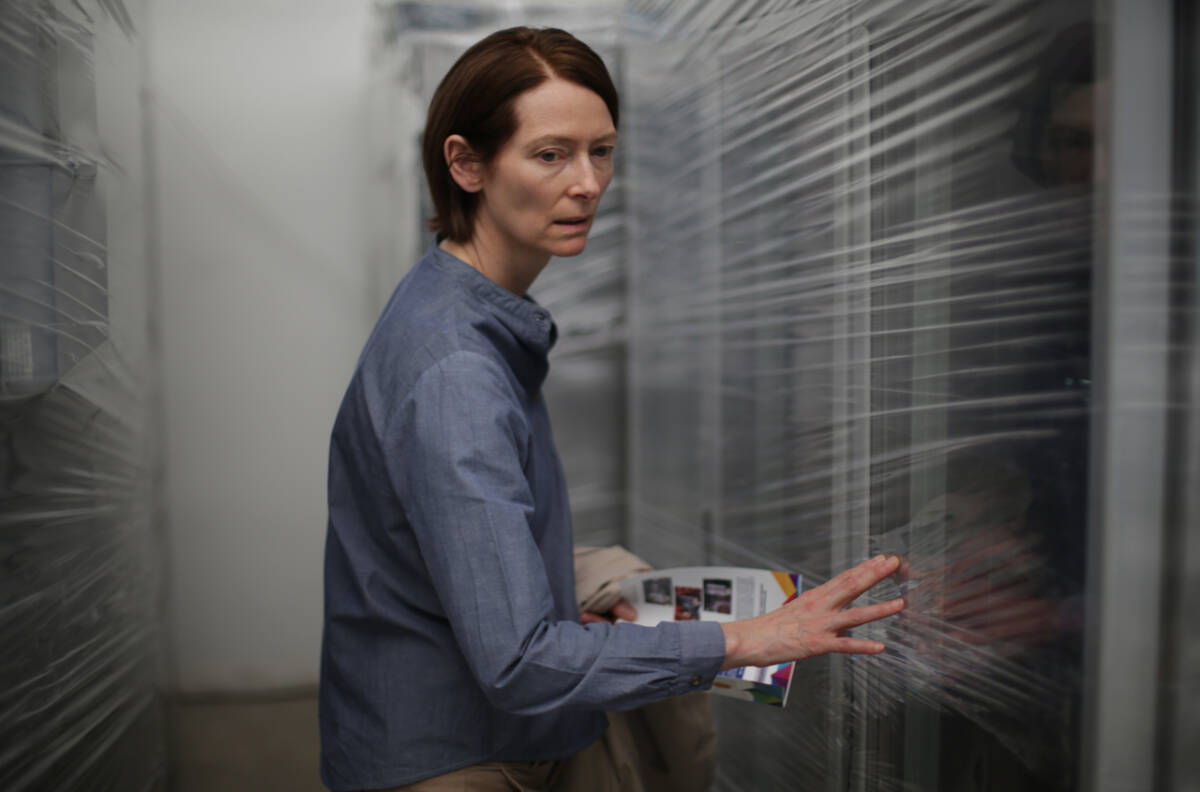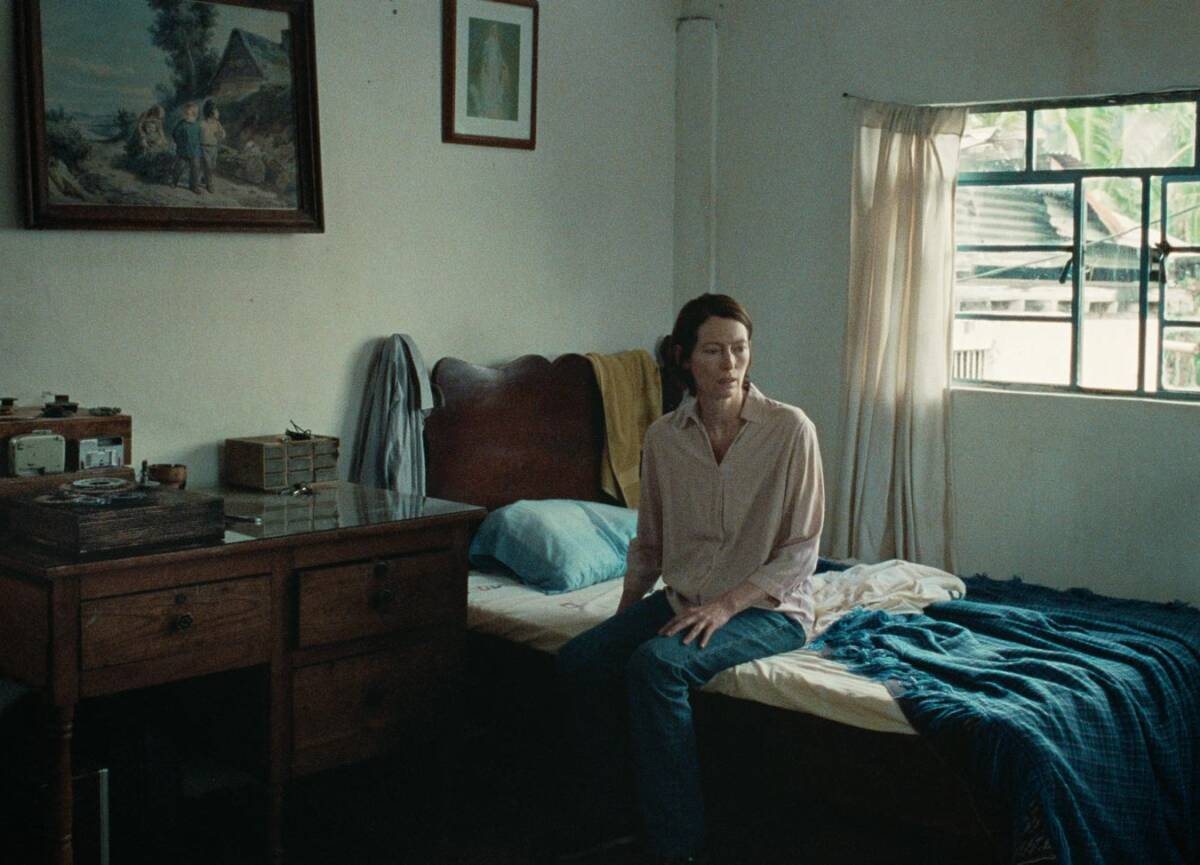VALENCIA. Apichatpong Weerasethakul’s cinema has often been criticized as difficult and cryptic. Nothing is further from reality. You just need to relax your eyes and let yourself be carried away by its images, its sounds, its symbolism and spirituality. His films immerse us in the mystery of the intangible, of the ethereal, of what we are not capable of apprehending, but of what we are able to perceive in a very intuitive way.
Over the years, the Thai director has become one of the great authors of contemporary cinema through a handful of works in which he has developed his serene filmic universe, but carried along by an enormous expressive force. Poetic, but at the same time, almost animal essence.
It is true, he has always moved away from the domains of underlining that invade us, his images, his (long) shots, require concentration and calm, but in reality, his films always speak of universal themes, of man and his problems, of the relationship we establish with life and death, of fears and insecurities and of the futility of existence.
Now his latest work is released, Memory, which won the Grand Jury Prize at the last Cannes Festival. A film that takes him away from his natural setting, Thailand, to take him to other domains, those of Colombia that, in some way, are related and twinned with those of his homeland through the jungle and unexplored territories full of mystery.
It is also the first time that he has worked with an international actress of the stature of Tilda Swinton (who speaks in Spanish). She is Jessica, a woman who hears a strange noise in her head. She tries to specify and describe it in words when she goes to a sound engineer to play it. At the mixing desk, they will try to find the exact texture and frequency. But nothing will be enough and, how could it be otherwise, will begin her particular path of exploration that will lead her to delve into herself, into intimate and also collective memory, into the heritage of a wounded people.
As in all of Apichatpong’s films, the pieces gradually fit together. Some do not have to make sense within the narrative, others are essential to delve into its essence. Thus, we find poems about mushrooms, dreams that have an abandoned dog as the protagonist, cars whose alarms go off by themselves, archaeological excavations, plant refrigerators that maintain their freshness at 30%, rituals of ancient tribes, Salvador Dalí and Sanax. All these elements introduce us to a story that little by little goes from realism to the fantastic genre.. We enter a territory inhabited by ghosts (one of the leitmotiv of Weerasethakul’s cinema) and finally we will never know if we are in a corporeal or mental state on Jessica’s itinerary.
Since his first works, the director has used illness, physical and worldly ills that devastate us to bring his characters closer to another dimension, that of transit towards death. Many of them are found on that border. The sleeping soldiers of Cemetery of SplendorUncle Boonmme who knows that his time is near and says goodbye to this world, or many of the characters that appeared in the medical consultations of Syndromes and a Century either Blissfully Yours looking for an answer to their ailments. Here, the protagonist’s sister is sick in the hospital and thinks that her ‘sickness’ has to do with something that has bothered the spirits.

For the director, existence is one more step towards another stage, towards another world and perhaps towards another body, human or animal, as suggested by the constant cycles of reincarnation that appear in his films and which are nothing more than the appropriation of all the religious imaginary and the collective subconscious of a country rich in popular legends that have to do with karma and the theory of the transmigration of souls. On this occasion, he returns to appropriate that incorporeal universe, but in a different way. Its protagonist, Jessica, will become a kind of antenna between the past, the present and the future.
As in Cemetery of Splendor the soldiers that appeared stayed asleep because the hospital was an ancient tomb of warriors, the ancestors also seize Tilda Swinton so that she becomes aware of the horrors of the past, of violence and unreason. They are the ruins of our civilization that we have raised by dint of fear and madness. There is always a political explanation in the director’s films, traumas that accumulate and end up exploding and that end up manifesting as a phantasmagorical allegory or, as in this case, as a science fiction movie.
Many of the stories that Apichatpong builds are located in a strange indeterminate place between the physical and the spiritual.. His films feed on the fantastic element and are impregnated with a magical halo. Sometimes the supernatural is inserted in the most everyday way in his fictions. The ghosts sit down to eat and chat with the living without provoking any feeling of strangeness, as if they were real characters who are still looking for their place in this world. Here, Tilda Swinton, takes the hand of a villager to find out from him what her story is.
It is not the first time that we have delved into the limits of the marvelous in the director’s films. In tropical malady (2004) the jungle acquired a profound telluric power to the point of turning the characters into primitive beings of legendary heritage who let themselves be carried away by their most elemental instincts.
There is something very organic in Weerasethakul’s cinema that connects us with the earth, with nature. In Blissfully Yours the bodies melted into the thicket, copulated and allowed themselves to be carried away by the most animal sexual drive, integrating themselves into a tangle of sounds and sensations, those of that insurmountable jungle full of beings and plants in which man abandoned his identity to enter into symbiosis with the natural environment.
The borders between reality and mirage are constantly being diluted. The dreamlike universe takes on a tangible form and leads us into a state of sensory trance on the verge of surrealism.. In Cemetery of Splendor there are amoebas that float in the sky, mediums that connect us with spirits, goddesses in human form, myths that take on a resonance in the present, and neon lights that immerse us in a hallucinatory state, as if the real intention of the director was to transport viewer into the inner space of the characters. To his deepest subconscious. In Memorythere are spaceships.
The storytelling capacity of this atypical and great Thai director has no limits. His triumph is to open new expressive paths and get us to enter them through unprecedented forms of cinematographic perception. He always grants us some unforgettable visual find: the ghost monkey of Uncle Boonmethe look of the tiger in tropical maladythe solar eclipse in Syndromes and a Centery. You do not have to be afraid. You just have to let yourself go and enjoy a poetic experience as hypnotic as it is sublime. Worth.

